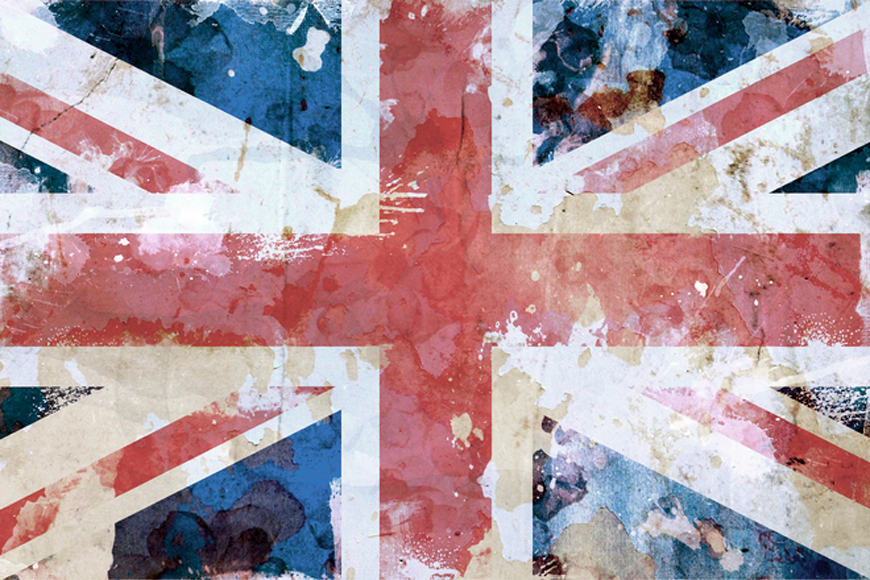Respected eSports journalist Richard Lewis has revealed ten ways to improve UK eSports in his latest video chat with us.
In part 1 of our interview with Richard Lewis, he spoke about what is wrong with the local scene here and how it’s declined over the years, following his initial comments saying the UK eSports scene needs to be nuked from space.
You can check out the full discussion video on how to fix UK eSports below, and his top ten ways to make it great again in written form:
1. Think big – embrace VC funding
Richard Lewis said that the global eSports market is worth $612m, and Europe generates $72m of that. So there is money to fund UK eSports, particularly from venture capital (VC) groups.
“There’s a lot of potential money out there,” Richard explains. “A lot of people think I have a problem with VC. I don’t. I have a problem with people taking VC money and pissing it up against the wall – because those VC people will not come back.
“Why don’t we have anybody really reaching out for these big VC groups and impressing upon them the importance of this region?
“I think these conversations aren’t happening not because people aren’t trying, but because nobody thinks big enough.
“We need competent business people to come to eSports. I don’t mean somebody that necessarily comes from an eSports background – I’m talking about a business person who has ties. The next step is they appoint an eSports consultant.
“Let’s say I am a venture capitalist and I want to make eSports great again. I don’t know how to separate the bullsh*t artists from the competent people. So I need someone to guide me in. We need somebody whose job is to connect people who want investment in eSports brands to people who are willing to invest. It could be a consultancy group or an agency – I know a couple of these but they aren’t quite there yet in terms of their connections or knowhow.
“Once you connect the money with people who know the scene, now we can start to grow something, and we can reach out to sponsors, and we can get people to invest in the UK, and we can show them all the good things we have.”
“There is something here in the UK. But we have got to start being a bit more robust in how we challenge the people that look to leverage the little we have to try and feather their own nests. We have got to drive those people out and start doing things the proper way if we’re ever to get back where we were in our heyday.”
2. UK orgs must target non-endemic brands
“When was the last time team owners talked to a non-endemic sponsor (i.e. a brand outside of eSports)? They simply do not do it – they don’t even know how to do it,” Richard says.
“I’ve got people running orgs coming to me asking: ‘Have you got an email for Razer?’
“What? That’s someone in our space. You should be able to just pick the phone up. What are you doing? How have you not got a business card and met somebody? That’s an endemic eSports sponsor and you’re asking people to connect to you. If you can’t connect yourself, get out of the business.
It’s unbelievable. It’s like being surrounded by water coolers and then dying of thirst. Richard gives an example of when he connected Bulmers cider with a UK organisation, and also speaks of UK orgs not keeping the dialogue going with sponsors.
“Investors always say to me: ‘We sponsored that team for that one event then we never heard from them again.’
“What? That blows my mind. What you have to talk about is the plan for the next event. You’ve got to keep that dialogue open.
“Our demographic is so important to a lot of industries, a lot of business. It’s that 14-30 demographic, middle class with disposable income. It’s a wonderful demographic to reach out to, you’ve got kids who like to spend on accessories, games, toys, DLC… then the adults, you have that slacker generation like myself. I like to have a beer and watch some eSports and order a pizza.
“When you scale it down, what you find is [UK eSports] people are not even picking up the phone to non-endemics, they’re not sending out their deck, they don’t even know what a deck is or what to include. I’ve seen some awful Powerpoint presentations.
“Tell them about your brand, your history, your team. People put achievement lists in a deck. They are meaningless. People want to know about social media reach, synergy and how you can do stuff for them.”
You can check out a deck by TotalBiscuit – name-dropped by Richard as a good example – here.
3. Don’t run an eSports team to get a return (success doesn’t always drive money in eSports)
“No business, no games developer, nobody is putting money into eSports to necessarily seek an immediate return,” Richard comments.
“If you create that aspirational element, if you can create community engagement, that’s what you monetise. That’s the value.
“For an organisation, that engagement can be streams, events, merchandising. When I look at the average organisation, some of them don’t even sell T-shirts. I know there’s outlay, but this is how business works. You’ve got to have a five-year plan, you can’t budget for one year and just hope it’s going to click. If there’s a way for fans to engage with you, they will. It could be through a YouTube channel, a documentary show about your org, you can sell pre-roll on that. Send out another deck asking if people want to be involved.
“People don’t do this. Success doesn’t drive money in eSports. That benefits the players, primarily. It can make you more attractive to some investors, but I’d say the majority of investors are looking for engagement ahead of success. They want orgs that have a very wide reach and can get them a return.”
4. Take a leaf out of Riot’s book
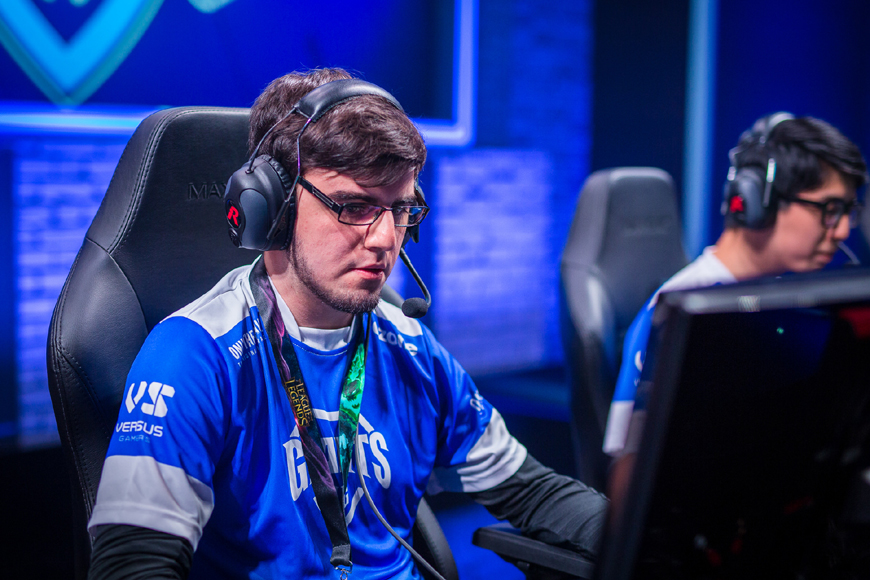
Riot Games is an obvious eSports success story. Learn from it.
“Their eSports division is a massive loss-leader across the board, they pay salaries, they run all these events – it hemorrhages money,” Richard explains. “But what better advertisement for their game is there than the LCS, than Worlds? Which is like the highest viewed eSports event of all time.
“That’s how they keep their natural churn that happens in games. That’s how they hook people in and why people stay and play the game. There are people out there who have zero chance of going pro but they’ll watch Worlds and want to improve their game. So people grind and play. Some drop out and new people come in. All these people spend money on microtransactions.
“The eSports side doesn’t make money, but through engagement of ancillary products, that’s where we make the money. And I just don’t see any sophisticated business models in UK eSports that are akin to that.”
“Reach out to your influencers. If you’ve got a top player not competing at the event, maybe he knows a UK player and has been to your event in the past, reach out to them. Ask them: ‘Could you do us a favour and retweet this to your followers or post a stream on your Twitch channel?'”
5. Learn from UKESA’s mistakes
“UKESA was run by a group of people with a failed string of businesses. They thought they saw the great eSports second coming. They bought a bunch of UK-based properties, ran them all into the ground and then disappeared into the ether,” Richard states.
“They created UKESA, created a Wikipedia page and said they were the governing body for UK eSports. What? Who are you? I don’t know who you are. Apparently they all had authority and dominion over us.
“They wanted to get eSports recognised as a sport so they can turn on that Government money. That sounds really cynical. That doesn’t sound like you want to build something, it sounds like you’ve identified a revenue stream that you want to control. And I bet a big slice of that will be going on getting you a Jag, a house, nice clothes and keeping you in a lifestyle you’re accustomed to. I think that’s b*llocks.
“If you want to turn the money tap on and make a positive societal impact, I’m on board with it. If you want to do it to be a bunch of flash harries, I’m not interested – I think you’re scum.
“I’d like to see all the ReDeYes, all your Odees and Adam Jessops, the people I believe are competent, they’re the people that should create their own little group and go to [UK games industry trade body] UKIE, and say: ‘We know what we’re doing. If you ever want any play in the eSports community, you do it through us and listen to what we say. Or we just crucify you every week. In the court of public opinion, you’ll be less than sh*t.’
“So any organisation which promises the holy land of Government money raining down and extra legitimacy for eSports, I’m super psyched you want to offer it to us, but we need to be on this panel and telling you how it works, because you do not understand the business.”
6. Engage influencers to drive viewership
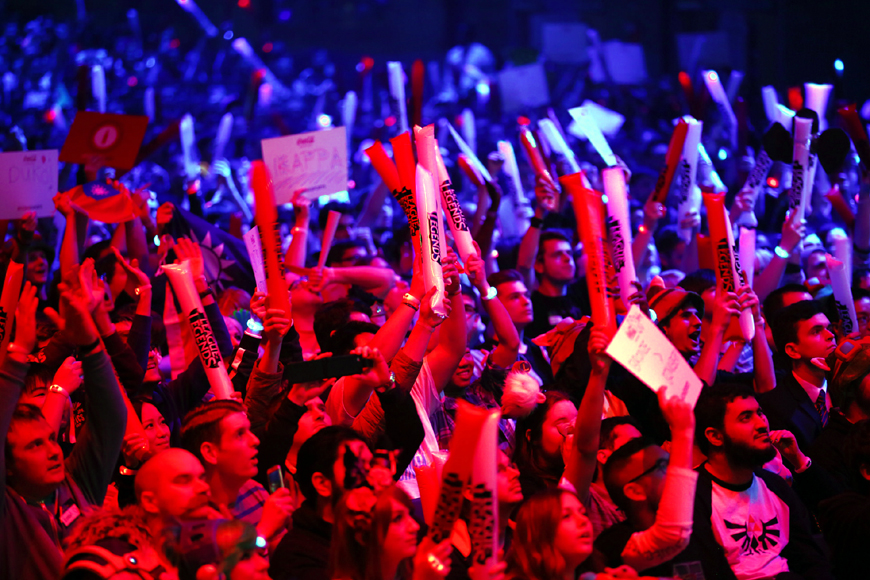
There are several ways to get people more interested in watching and consuming UK eSports content.
“How do we drive that engagement?” Richard Lewis asks. “I do a lot of talks at colleges, and I know there’s an interest there. But I don’t see any organisations going around, going to local schools and colleges, and offering tickets or incentives, doing talks on the positives about eSports.
“I don’t see anybody trying to hook in young people. Live viewership – I don’t think we do anywhere near enough. If you need to bring somebody who is non-eSports, like a big YouTuber, and get them on stage and do a silly dance… once you get them through the door, they’ll see something they like about eSports. I believe that – I’ve seen that.
“Getting bums on seats is a basic sales thing. Now online, you engage with a developer and they retweet your championship out there, there’s going to be some concessions you have to make, it will have to be of a certain standard. If you’re willing to do that or have to do that, they will retweet you from their social media channel, and all of a sudden you’ve got people interested.
“I’ve seen ESL UK games between two meaningless teams get as high as 20,000 views because the match was on CSGO Lounge. We’ve got a sensible approach to gambling in the UK, maybe that’s something we can work on.
“Reach out to your influencers. If you’ve got a top player not competing at the event, maybe he knows a UK player and has been to your event in the past, reach out to them. Ask them, ‘could you do us a favour and retweet this to your followers or post a stream on your Twitch channel’?
“Who’s having those conversations? Nobody. They think it’s the Field of Dreams, mate. ‘Build it and they will come.’ No, it doesn’t work like that.
“Some people do ask for crazy amounts of money, but you’ll be amazed at how many people will come and do an event for free.
There are people who just turn up sometimes. If you’ve got an e-celebrity who has bought a ticket to your event and nobody has noticed, they’ve come to the event and are interacting with fans… pounce on that. Tell them, if you do a fan meet, we’ll pay for a hotel, for example.
“Why couldn’t we get a couple of guest commentators for an event and have a bit of fun with it.
“When’s the last time an event has said: ‘Come along and we’ll put up a room and you can camp in it overnight.’ Is travel a problem? Let’s put on a free National Express coach. Yes, it’ll be hell on Earth as it picks people up for seven hours, but you get to the event. It’s free. It’s weird to me to see how we’ve gone backwards on events.”
7. Embrace British banter
“We’ve got a real problem where certain types of sense of humour and cultures are under threat from this homogenized view of how Western culture needs to be,” Richard says.
“I think we throw away one of greatest strengths. The British sense of humour is legendary the world over, and it involves being self-deprecating and laughing at other people’s misfortune. It involves poking fun at people and taking something wildly inappropriate and making a joke about it. I don’t see why that’s a problem. Just because it might not translate to the average American, or Scandinavian, or Japanese person or whoever, I don’t think it means we necessarily don’t have to be ourselves.
“eSports is eSports. I want it to be serious and professional at the highest level, obviously. I want it to be recognised as a sport so people who are derogatory about what we do can’t shoot us down with easy ammunition. Equally, I want my smaller events, local scenes and amateur players to have fun. I don’t see why fun is a dirty word nowadays.
“The one strength Britain has in eSports terms, is that we do produce a lot of witty, dry and funny people. You think about Joe Miller, 2GD, ReDeYe – back before Dota absorbed him and he became one with the memelord, the mother brain at the heart of Dota 2. Look at Thorin. These are people who offer brash, blunt opinions.
“We’ve consistently produced people like that. And that links in with what I said earlier about why we’ve produced so many great broadcasters.”
“The one strength Britain has in eSports terms, is that we do produce a lot of witty, dry and funny people. We’ve consistently produced people like that.”
8. Improve tournament formats to prevent drug use and cheating
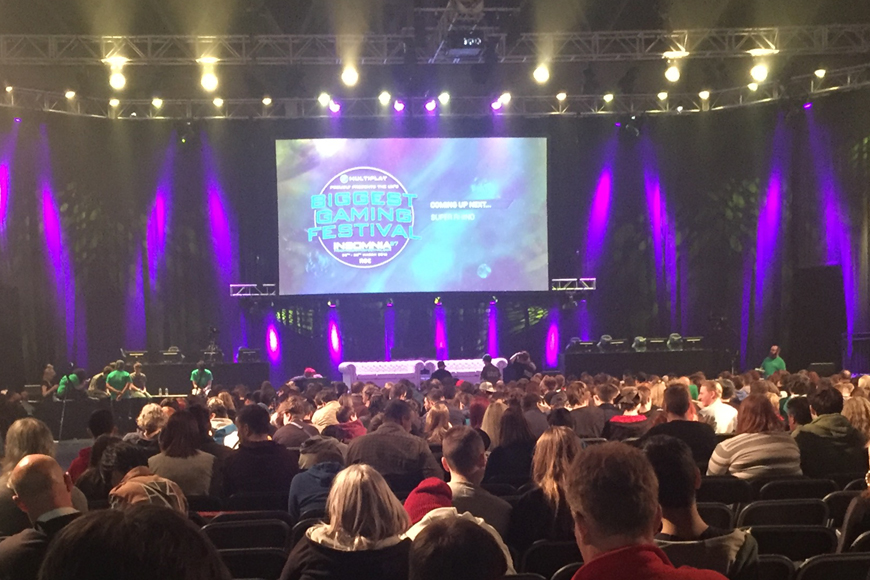
Speaking about the recent case of drug use in UK CSGO, Richard Lewis says: “Anybody who is surprised by drug use in eSports is a moron. Drug use primarily exists because the average is so unreasonable with how it’s structured, you need a pick-me-up, you need a chemical enhancer.
“I’ve seen amateur events where you have to get up at 9am, you play at 10am, you play until 2 in the morning, and you’re up again at 9 to play at 10. If you win all those games, you’re back again at 10 to play a best-of-five final at 12. This is too many games in too short a time.
“I’ve seen teams play nine best-of-three matches, insane games playing consistently for 16 hours. It’s not fair to do it to these athletes.
I’m a caffeine addict – I need five cups of coffee in the morning or my brain does not boot up. Some people need stronger stimulants to get through a grueling eSports event. A lot of the time it was adderall. Sometimes it’s cocaine, sometimes it’s speed.
“There was a legal drug called methadrone which was legal in the UK. They made it illegal but it was very potent. That went around LAN events. A decent UK Counter-Strike player with a lot of experience was the first man arrested in the UK for possession of that drug. I think it was in 2011.
“That’s a bad life decision based around the pressure of needing to compete. So I feel a degree of sympathy [for K1NDeadlyCSGO], especially when he talked about addiction.”
On cheating, Richard adds: “You’ve got to get better tools to detect these cheats. It’s not reasonable to get an admin stand behind them. You’ve got 70 teams at some of these events.
“There needs to be some LAN anti-cheat client that can do scans of a PC. And you get there, you install it, you have no access to the client before, so they don’t know what version it’s going to be, so new cheats can’t assimilate it into their client.
“It’s got to be put together by somebody who is competent. I don’t see why partnerships couldn’t be done, for example Multiplay using ESL Wire.
“If you want BYOC events to be held up to any degree of competitive integrity, you need more bodies checking out what people are doing, strong admins who need to know what they’re looking for, and an anti-cheat client that runs at the LAN events.
“If you want to have it akin to a pro event, you need to put players through a similar rigmarole as what you’d go through at a pro tournament. No phones at your desk – and there needs to be penalties for this – no talking when you’re dead and your screen is black. I don’t see it adequately enforced.”
“Nobody talks about the bad things in eSports. They think if you talk about the problems and the issues, people will lose confidence and the money will go away. Well that might be true, but a far worse scenario is you don’t talk about the problems, those people invest the money and then it happens.”
9. Players need better incentives to practice more
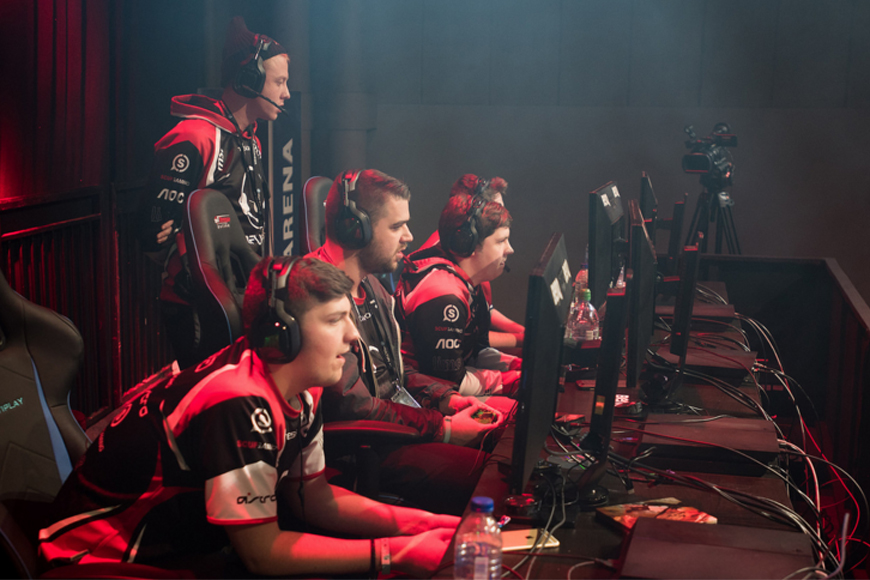
“Right now the only incentive is that you’ll win the game. If you already believe you’ll win the game, why would I put any extra effort in?” Richard asks.
“So I need to incentivise you, I need to pay you. I need to say this is the standard or the minimum we expect, and for that we’ll give you this. If I do that, people will practice. I know that because I’m around pro teams every day. I actually think pros practice too much.
“I would just say to players, if you want to get anywhere and you want to take it seriously, respect yourselves, put in the amount of work that you realistically can and make sure it’s good, smart, intelligent practice. You know when you’re fatigued, once you’re slogging, you’re not learning anything. You need something different as an activity to bring yourself back up.
“Some people dictate their own practice regimes – you would never let an athlete do that. I used to box, I couldn’t even imagine saying to my coaches: ‘Yeah I’m done now, I think 50 sit-ups will do it for today, yeah?’ If they said, ‘Yeah alright champ,’ and give me a shoulder rub, then they’re terrible coaches. So again, it’s an infrastructure problem.
“So orgs, have an infrastructure there that rewards good practice, and that includes paying your players.
10. Don’t ignore the bad stuff – talk about it, learn from it and try again
“Nobody talks about the bad things in eSports. They think if you talk about the problems and the issues, people will lose confidence and the money will go away,” Richard explains. “Well that might be true, but a far worse scenario is you don’t talk about the problems, those people invest the money and then it happens.
“The same old sh*t happens again and again. They’re never coming back. And they tell all of their mates and other companies they have partnerships with. All it takes is one or two people, and the spread that has is bad. That’s why it’s important to do things correctly.
“All my career I’ve highlighted what we do wrong not because I hate eSports or I don’t want it to grow. It’s for the exact opposite reason – I care about it so much, I want to hold its flaws up so we can fix them and people know what they’re getting into. That’s vitally important to scrutinise what you care about. It’s very important we polish it and get it right.
“If you’re somebody who’s had their fingers burnt by UK eSports or you want to do something positive for UK eSports, ask what it is realistically you can do. Ask what your forte is, do not just come in and assume that because it’s an amateur scene and a new industry, that it’s going to be easy. It’s a highly specialist industry and we need specialists in key areas.
“So if you think you are one of those people, please do come in, we are going to drive the idiots out, we are going to nuke it from space, we are going to rebuild, it’s gonna take time.
“Just stick to what you know. Do what you’re good at. Try and network and find the right people that can give you information, knowledge, experience and wisdom, and other connections that you need to get things done. Scrutinize them. Make sure the next person you’re talking to isn’t just a nice geezer you met down the pub, make sure he’s actually a competent business person you can have a meaningful partnership with.
“There is something here in the UK. But we have got to start being a bit more robust in how we challenge the people that look to leverage the little we have to try and feather their own nests. It cannot work.
“We have got to drive those people out and start doing things the proper way if we’re ever to get back where we were in our heyday. I don’t think it’s going to happen any time soon, but I’m a believer that it can happen.”
Check out part 1 of our video interview with Richard Lewis on UK eSports here.
YOUR VIEWS
What are your thoughts on how UK eSport can be improved? Leave a comment below or tweet us @eSports_News_UK
You can follow Richard Lewis on Twitter and subscribe to The Richard Lewis Show on YouTube here.
Image source: FreeImages/John McMurdo

Dom is an award-winning writer and finalist of the Esports Journalist of the Year 2023 award. He graduated from Bournemouth University with a 2:1 degree in Multi-Media Journalism in 2007.
As a long-time gamer having first picked up the NES controller in the late ’80s, he has written for a range of publications including GamesTM, Nintendo Official Magazine, industry publication MCV and others. He worked as head of content for the British Esports Federation up until February 2021, when he stepped back to work full-time on Esports News UK and offer esports consultancy and freelance services. Note: Dom still produces the British Esports newsletter on a freelance basis, so our coverage of British Esports is always kept simple – usually just covering the occasional press release – because of this conflict of interest.

